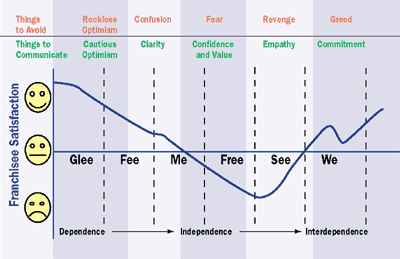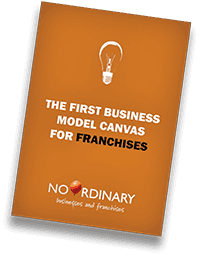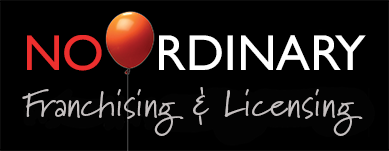ARE FRANCHISE DOCUMENTS WORTH THE PAPER THEY’RE WRITTEN ON?
Let’s face it, most of them are written on pretty expensive paper. A franchise agreement alone can cost more than $20,000. But a leading franchise lawyer who once argued that standardisation is “a dangerous road to go down” recently threatened to sue another law firm for copying one of his franchise agreements. If all franchise agreements are different, how did he know it was his? Could the legal profession’s objection to standardisation be designed to protect their fee structure? And is there a better, more affordable way?
You walk into a McDonald’s or Pita Pit or Midas and what do you find? Each one is pretty much the same as every other McDonald’s or Pita Pit or Midas. Franchising is all about uniformity or standardisation. But apparently standardisation does not apply to franchise agreements. An attempt by the Auckland District Law Society to introduce a standard agreement in 2011 was shot down in flames by pretty much every franchise lawyer and consultant in New Zealand.
One of these was one of New Zealand’s most experienced franchise lawyers.
“A franchise is not like a house sale and purchase agreement, or even a normal business sale and purchase,” Stewart Germann said at the time, quoted in Franchise New Zealand. “It involves an ongoing relationship with a lot of variables. You can’t just give lawyers a blank form with a lot of spaces to fill in and expect them to create a legally binding document that will properly manage the development of that relationship over five years or more.”

Source: Franchise New Zealand
This is the most commonly-heard argument against standard franchise agreements. But times change, business models evolve and franchise relationships have their ups and downs as Greg Nathan’s e-Factor Franchisee Satisfaction Curve
illustrates. So how do you establish the rules and commitments at the beginning of a franchise relationship while providing the flexibility for change over time?
Most franchise agreements don’t even really try.
They’re basically a list of do’s and don’t’s – for the franchisee, not the franchisor – with a few IFTTTs (if this, then that) thrown in to cover possible eventualities in the future. So the argument is moot.
In my opinion, for a franchise agreement to be worth its salt it must at least attempt to resolve the tension between providing certainty and providing flexibility. Clearly this is not an easy task. Many lawyers – including, I believe, Stewart Germann – do this by building a duty for both parties to the agreement to act in good faith toward each other. In broad terms this means that both franchisors and franchisees must treat each other with openness, integrity and respect. The franchise agreement should reflect the special relationship of interdependence and mutual benefit that characterises franchising, committing both parties to act in the spirit of partnership with the other party’s interests in mind as well as their own.
In my view, only this kind of agreement, known as relational agreement, can come close to providing the flexibility needed for the franchising relationship to deal with change in a fast–changing world. What will your franchise look like in five years’ time? How will it need to evolve in order to remain relevant and vital? Of course, there’s no way to know. So rather than wasting your time trying to anticipate change in explicit terms, it makes better sense to deal with the implicit terms and understandings which will determine the behaviour of the parties when anything unanticipated comes up.
I’ll get off my hobby horse now...
... and back to the issue of standardisation of franchise documents, in particular franchise agreements.
Who’s the best professional to prepare a relational franchise agreement – a franchise lawyer or a franchise consultant? There are pros and cons of each. The lawyer will – or should – have experience in preparing franchise agreements and be up with the play on the latest developments in laws relating to franchising. But the lawyer probably will have no experience of operating a franchise and the day–to–day issues that franchisors and franchisees face. The consultant may have no experience in law, but may have been a franchisor or franchise manager and will certainly have had some hands–on background in franchising relationships.
Given that franchise lawyers and franchise consultants both have something important but different to add to franchise agreements, wouldn’t it make sense for both to be involved in the preparation of franchise agreements?
Here’s how I assist my clients in preparing or improving their franchise agreements. First, I talk with my clients about their businesses’ needs and, if possible, spend some time in the businesses in order to understand what makes them tick. I use that understanding to choose the template which best meets the needs of each individual client from the standard franchise agreements which I have developed over the years. I don’t pretend as I believe some franchise professionals do that I start with a blank sheet of paper and build up a completely new agreement from scratch. No one in their right mind would do it that way, but I’m honest with my clients about it. I only charge them for the work I do in tailoring the agreement to meet their exact needs and requirements. In this way, I save them 50 – 70% on the fees I’ve seen charged by lawyers for the same types of agreements.
Of course, I insist that my clients also obtain independent legal advice on their agreements.
The most recent response I received was: “By way of general comment, the Agreement is very good.” The lawyer then suggested five small amendments, three of which my client rejected because they were purely stylistic personal preferences – the way the lawyer would put it rather than I had put it. The other two suggestions were worthy of inclusion in the agreement – and in my future template. For this service the lawyer charged my client more than I had charged to prepare the entire agreement.
In conclusion, I am a fan of standard agreements and documents when they provide templates based on best practice in franchising and reduce the cost of preparation, but believe that these agreements require professional input to fully meet the requirements and needs of franchise systems in the real world. Ideally, that professional input should come from both franchise consultants and franchise lawyers – each approaches the agreement from a different and important perspective.
Talk to me about our fresh and unique approach to preparing and upgrading franchise agreements, disclosure documents, manuals and any other franchise documentation.
My name is Robin La Pere of No Ordinary Consultants and I have worked in the franchising industry for more than 20 years. I have been a franchise manager, CEO and franchisor, and am now a franchise consultant helping businesses to expand through franchising, licensing, joint ventures and strategic partnering.
In the early part of my career, I was a copywriter and marketer, and bring the gift of easy-to-understand English, clear explanation and a marketing approach to my work with franchise documents – even to franchise agreements and disclosure documents which I believe must support the franchise brand and marketing message through the recruitment process.
If you'd like an assessment of your franchise documents and a strategy for making them more effective, I invite you to contact me
for a free Initial Consultation.
Relevant Articles
A major strength of franchising is that it’s based on tried and true business models. Trouble is, in this fast-changing business environment, what’s tried and true one year may be tired or irrelevant the next.
Not surprisingly, one out of three franchisors is concerned about the viability of their business model.
The 'Business Model Canvas' has emerged as a powerful tool for developing and updating business models. Recognising that franchise businesses differ in several ways from other business types, I have come up with a new version of the Business Model Canvas designed specifically for franchises.
Send me your email and I'll email you my e-book The Business Model Canvas for Franchisors:




